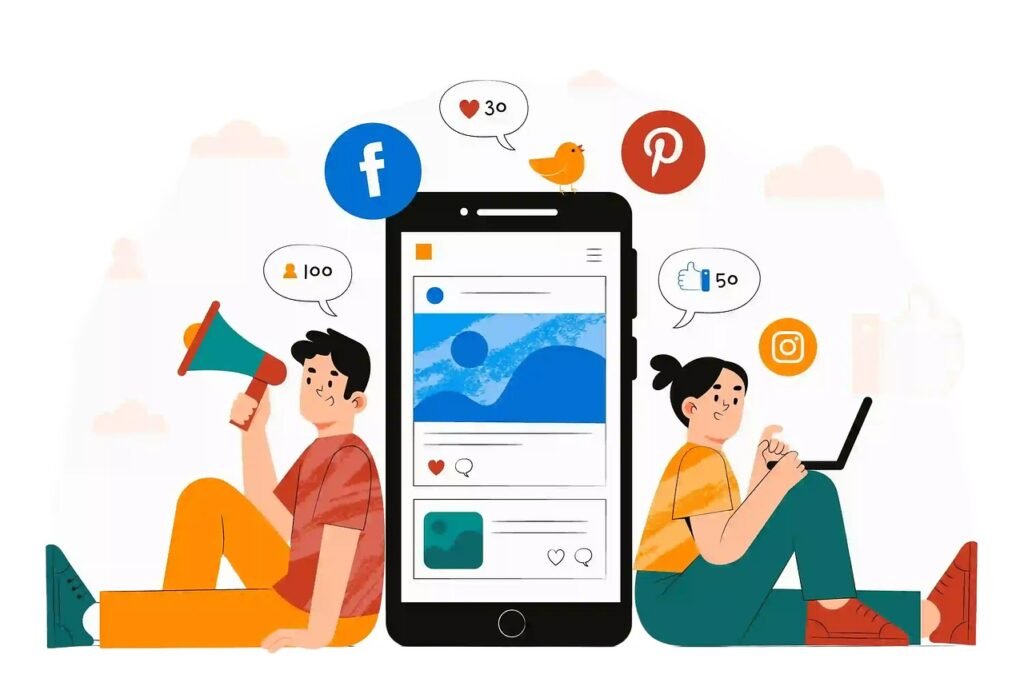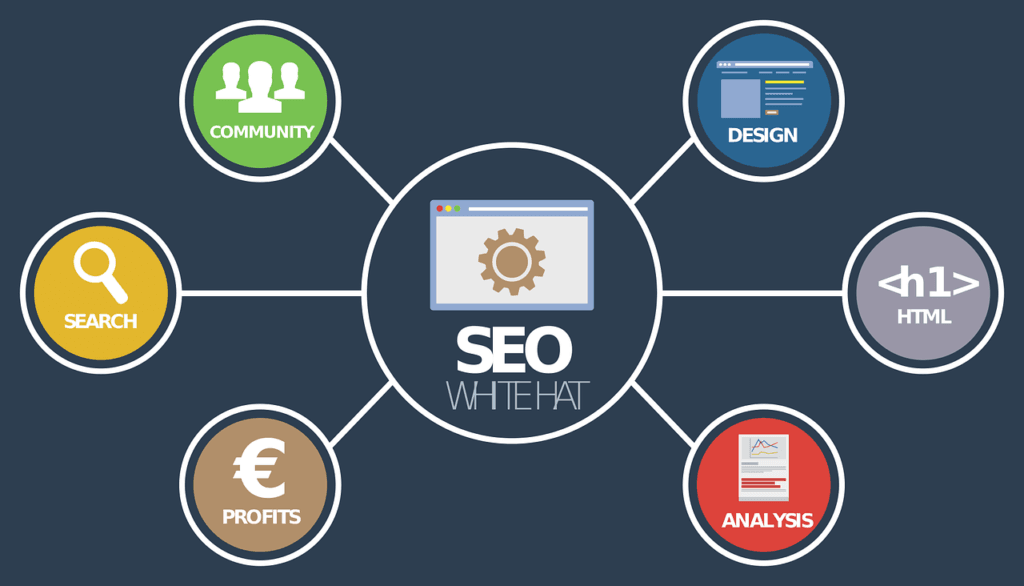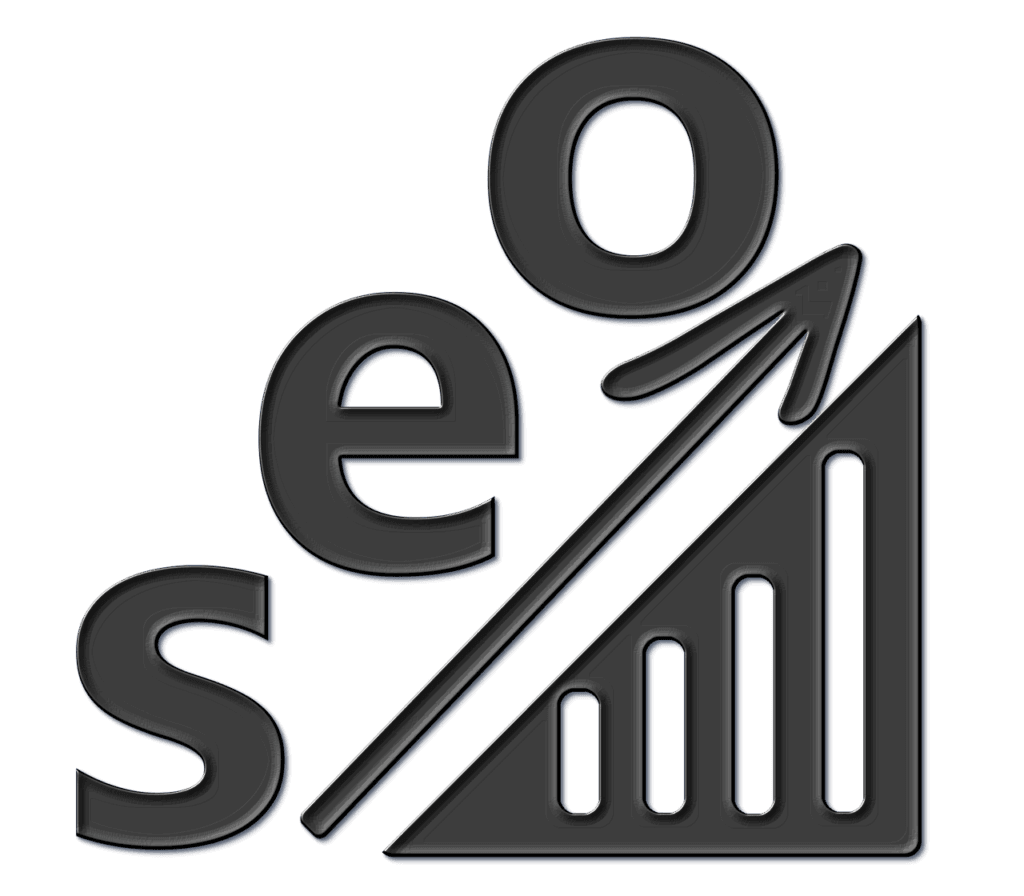This Article has been revised, edited and added to, by Poulomi Chakraborty.
- Understanding the Relationship Between Social Media and SEO
- Practical Strategies for Leveraging Social Media for Healthcare SEO
- Measuring the Specific Impact of Social Media Activities on Healthcare SEO
- Advanced Techniques for Integrating Social Media and SEO in the Healthcare Industry
- Leveraging Influencer Marketing for SEO Gains
- Utilizing Social Listening Tools for Content Strategy
- Implementing Social Media Contests and Campaigns
- Creating Evergreen Content for Sustained Engagement
- Enhancing Content with User-Generated Content (UGC)
- Utilizing Paid Social Media Ads to Boost SEO
- Integrating SEO Best Practices into Social Media Profiles
- Collaborating with Other Healthcare Providers
- Measuring ROI of Social Media and SEO Integration
- Key Points and Actionable Takeaways
- Experts Opinion
- Conclusion
In the dynamic world of digital marketing, understanding the impact of social media on SEO is crucial, especially for the healthcare sector. Social media is not just about connecting with your audience; it’s also a powerful tool to enhance your SEO efforts. By integrating social media strategies with SEO, healthcare providers can reach a broader audience, improve their online visibility, and ultimately drive more traffic to their websites. This article explores how social media influences healthcare SEO and provides actionable insights to measure and optimize this impact effectively.
Understanding the Relationship Between Social Media and SEO

Social Media Signals and SEO
Social media signals refer to the interactions people have with your content on social platforms, such as likes, shares, comments, and views. While these signals are not direct ranking factors, they play an essential role in your SEO strategy.
Search engines like Google take into account the overall popularity and engagement of your content, which is often reflected through social media activity.
For healthcare providers, social media signals can significantly impact how search engines perceive the relevance and authority of their content. A well-shared post on managing diabetes, for instance, can lead to more backlinks, increased website traffic, and higher engagement rates, all of which are beneficial for SEO.
The more your content is shared and discussed on social media, the more likely it is to be seen as valuable by search engines, leading to better rankings.
Comparing Organic SEO and Social Media Influence
Organic SEO involves optimizing your website and content to rank higher in search engine results without paying for placement. This includes keyword optimization, creating high-quality content, improving site speed, and ensuring mobile-friendliness. Organic SEO is a long-term strategy that focuses on building credibility and authority over time.
In contrast, social media influence on SEO is more immediate and dynamic. Social media platforms provide an opportunity to quickly distribute content to a wide audience, garnering interactions that can indirectly boost your SEO.
For example, a viral post about a new healthcare innovation can drive a significant amount of traffic to your website in a short period, providing a temporary but powerful boost to your SEO.
However, the benefits of social media are not just short-lived. Consistently engaging with your audience on social media, sharing valuable content, and building a community can lead to sustained increases in website traffic and user engagement, which are beneficial for long-term SEO success.
Integrating Social Media and SEO Strategies
To maximize the impact of social media on your healthcare SEO, it’s essential to integrate these strategies seamlessly. This means not only sharing content on social media but also optimizing it for search engines.
For instance, using relevant keywords in your social media posts, creating compelling meta descriptions, and including links to your website can enhance your SEO efforts.
Additionally, engaging with your audience on social media by responding to comments, sharing user-generated content, and participating in discussions can increase your visibility and credibility. This engagement can lead to more backlinks and mentions from other websites, further boosting your SEO.
Another critical aspect is tracking and analyzing the performance of your social media activities. By understanding which posts generate the most engagement and drive the most traffic to your website, you can refine your strategy to focus on the most effective tactics.
Comparing Platforms: Facebook vs. LinkedIn
Different social media platforms can have varying impacts on your SEO. For example, Facebook and LinkedIn, two of the most popular platforms, serve different purposes and audiences, affecting your SEO differently.
Facebook is ideal for reaching a broad audience with diverse interests. It is particularly effective for sharing content that is engaging and visually appealing, such as videos, infographics, and blog posts.
The high engagement rates on Facebook, through likes, shares, and comments, can drive significant traffic to your website, benefiting your SEO.
LinkedIn, on the other hand, is more suited for professional and industry-specific content. For healthcare providers, LinkedIn is an excellent platform for sharing research articles, industry news, and professional achievements.
The professional audience on LinkedIn can lead to high-quality backlinks and mentions from reputable sources, which are highly valuable for SEO.
By understanding the strengths of each platform and tailoring your content accordingly, you can maximize the impact of your social media efforts on your healthcare SEO.
Practical Strategies for Leveraging Social Media for Healthcare SEO

Creating High-Quality, Shareable Content
The foundation of any successful social media strategy is high-quality content that people want to share. For healthcare providers, this means creating content that is informative, trustworthy, and engaging.
Educational articles, patient success stories, expert interviews, and infographics about health topics are all examples of content that can resonate with your audience.
When creating content, focus on addressing common questions and concerns that your audience might have. For instance, a detailed guide on managing a specific condition, such as diabetes, can attract significant attention and engagement.
Ensuring your content is accurate and well-researched will build trust with your audience, making them more likely to share it with others.
Visual content, such as infographics and videos, tends to perform exceptionally well on social media. These formats can simplify complex medical information, making it more accessible and engaging for your audience.
For example, a short video explaining the steps of a medical procedure can be more compelling than a long text description.
Optimizing Content for Social Media
Once you have created high-quality content, the next step is to optimize it for social media platforms. This involves several key elements:
Use Engaging Titles and Descriptions: Crafting compelling titles and descriptions is crucial for attracting attention on social media. Ensure that your titles are clear and concise, giving a snapshot of what the content is about.
Descriptions should provide a brief summary that entices users to click and learn more. Incorporating relevant keywords can also help improve visibility on social platforms.
Incorporate Relevant Hashtags: Hashtags can significantly increase the reach of your social media posts. Use relevant and trending hashtags related to your content to make it more discoverable. For healthcare content, hashtags like #HealthTips, #Wellness, and #MedicalAdvice can help attract a targeted audience interested in your topic.
Optimize Images and Videos: Visual content should be optimized for each social media platform’s specifications. Ensure that images and videos are of high quality, properly sized, and visually appealing. Adding captions to videos can make them more accessible and engaging, especially on platforms where videos auto-play without sound.
Include Calls to Action: Encourage your audience to engage with your content by including clear calls to action (CTAs). Ask them to share their thoughts in the comments, share the post with others, or visit your website for more information. Engaging CTAs can increase interaction and drive more traffic to your site.
Engaging with Your Audience
Active engagement with your audience on social media is crucial for building a strong online presence and boosting your SEO. Responding to comments, answering questions, and acknowledging feedback can foster a sense of community and trust.
This interaction not only improves user experience but also encourages more shares and discussions, which can enhance your SEO efforts.
For example, if a patient shares their experience with a particular treatment on your social media page, take the time to respond thoughtfully. Express gratitude for their feedback, offer additional information, or address any concerns they might have.
This level of engagement shows that you value your audience and are committed to providing excellent care and information.
Analyzing Social Media Metrics
To effectively leverage social media for healthcare SEO, it’s essential to track and analyze your social media metrics. This involves monitoring key performance indicators (KPIs) such as engagement rates, click-through rates, shares, and website traffic.
Tools like Google Analytics, Facebook Insights, and Twitter Analytics can provide valuable data on how your content is performing.
By analyzing these metrics, you can identify which types of content resonate most with your audience and drive the most traffic to your website. For example, if you notice that videos about preventive health measures receive high engagement, you can focus on creating more of this content.
Regular analysis helps refine your strategy, ensuring that your efforts are aligned with your audience’s preferences and interests.
Building Relationships with Influencers
Collaborating with influencers can amplify your social media reach and enhance your SEO efforts. Influencers in the healthcare sector, such as medical professionals, health bloggers, and patient advocates, have established credibility and a large following. Partnering with them can help you reach a broader audience and gain valuable backlinks to your website.
When selecting influencers to collaborate with, consider their relevance to your field and their audience’s interests. A cardiologist with a strong social media presence, for instance, could be an excellent partner for promoting heart health content.
Engage with influencers by sharing their content, commenting on their posts, and reaching out for potential collaborations.
Measuring the Specific Impact of Social Media Activities on Healthcare SEO

Tracking Website Traffic from Social Media
One of the most direct ways to measure the impact of social media on your healthcare SEO is by tracking the traffic it drives to your website. Using tools like Google Analytics, you can monitor how many visitors are coming from your social media channels and which content they are engaging with.
In Google Analytics, navigate to the “Acquisition” section to see the breakdown of traffic sources. Here, you can view how much traffic each social media platform is driving to your website. This data can help you understand which platforms are most effective in reaching your audience and which types of content perform best.
For example, if you notice that Facebook is driving more traffic compared to LinkedIn, you might decide to focus more efforts on creating engaging content specifically for Facebook.
Additionally, analyzing the behavior of social media visitors, such as the average session duration and pages per session, can provide insights into how engaging and relevant your content is to this audience.
Monitoring Engagement Metrics
Engagement metrics, such as likes, shares, comments, and retweets, are crucial indicators of how well your content is resonating with your audience. High engagement rates suggest that your content is valuable and relevant, which can lead to increased visibility and traffic.
Tools like Facebook Insights and Twitter Analytics provide detailed information on engagement metrics for your posts. By regularly monitoring these metrics, you can identify patterns and trends in user behavior.
For instance, if posts about preventive health measures consistently receive high engagement, you might consider creating more content on this topic.
Engagement metrics can also indirectly impact your SEO. High engagement can lead to more shares and backlinks, which are important factors in search engine rankings. Therefore, focusing on creating content that encourages interaction can enhance both your social media presence and your SEO performance.
Evaluating Backlink Quality and Quantity
Backlinks, or inbound links from other websites, are a significant factor in SEO. Social media can play a crucial role in generating backlinks. When your content is shared widely on social media, it increases the chances of other websites linking to it, thus improving your search engine rankings.
To measure the impact of social media on your backlink profile, use tools like Ahrefs, Moz, or SEMrush. These tools allow you to track the number of backlinks your content has received and evaluate their quality. High-quality backlinks from reputable websites are more valuable than a large number of low-quality links.
For example, if a well-known health blogger shares your article on managing diabetes, and it gets linked by several other health-related websites, it can significantly boost your SEO.
By analyzing your backlink profile, you can identify which social media activities are most effective in generating valuable backlinks and refine your strategy accordingly.
Assessing Social Signals and Their SEO Impact
While social signals (likes, shares, and comments) are not direct ranking factors, they influence SEO by driving traffic and engagement. Search engines consider the popularity and relevance of your content, which can be reflected in the social signals it receives.
To assess the impact of social signals on your SEO, monitor how your content performs on social media and compare it with your search engine rankings.
For instance, if a particular blog post receives a high number of shares and likes on social media, track its performance in search engine results over time. You may notice a correlation between high social engagement and improved search rankings.
Using UTM Parameters for Detailed Tracking
UTM parameters are tags added to URLs to track the performance of specific campaigns or content pieces. By using UTM parameters, you can get detailed insights into how social media activities are driving traffic to your website and which campaigns are most effective.
For example, when sharing a blog post on Facebook, you can add UTM parameters to the URL to track how many visitors came from that specific post. Google Analytics will then provide data on the traffic generated by that URL, allowing you to see the impact of your social media efforts more clearly.
Measuring Conversion Rates
Ultimately, the goal of any SEO or social media strategy is to drive conversions, whether that means booking an appointment, signing up for a newsletter, or downloading a health guide. Measuring conversion rates from social media traffic is essential to understanding the ROI of your efforts.
Set up conversion tracking in Google Analytics to monitor the actions users take after visiting your website from social media. This can include form submissions, downloads, or other key actions. By analyzing conversion data, you can determine which social media platforms and content types are most effective in driving valuable actions.

Advanced Techniques for Integrating Social Media and SEO in the Healthcare Industry
Leveraging Influencer Marketing for SEO Gains
Influencer marketing can be a powerful tool for enhancing your healthcare SEO. By collaborating with influencers who have a strong online presence and credibility in the healthcare field, you can significantly boost your content’s reach and authority.
Influencers can share your content with their followers, leading to increased visibility, engagement, and backlinks, all of which positively impact your SEO.
To effectively leverage influencer marketing, identify influencers whose audience aligns with your target demographic. Engage with them by commenting on their posts, sharing their content, and reaching out for potential collaboration opportunities.
When an influencer shares your content, it not only reaches a broader audience but also gains credibility through association with a trusted figure.
Utilizing Social Listening Tools for Content Strategy
Social listening involves monitoring social media platforms for mentions of your brand, competitors, or relevant keywords. This can provide valuable insights into what your audience is talking about, their concerns, and trending topics.
By incorporating social listening into your content strategy, you can create content that resonates with your audience and addresses their needs.
Tools like Hootsuite, Brandwatch, and Mention can help you track these conversations. For example, if you notice a surge in discussions about mental health awareness, you can create content that addresses this topic, ensuring it is optimized for both social media and search engines.
This proactive approach helps you stay relevant and engage your audience with timely and valuable information.
Implementing Social Media Contests and Campaigns
Running social media contests and campaigns can drive significant engagement and traffic to your healthcare website. Contests encourage users to share your content, increasing its reach and generating more social signals. These activities can lead to higher engagement rates and potentially more backlinks, benefiting your SEO.
Design contests that are relevant to your audience and easy to participate in. For instance, a photo contest where participants share their healthy lifestyle tips can generate a lot of user-generated content. Ensure the contest rules include sharing your content or using specific hashtags, which can help track participation and amplify your reach.
Creating Evergreen Content for Sustained Engagement
Evergreen content remains relevant and valuable over time, providing long-term benefits for both SEO and social media engagement. For healthcare websites, evergreen content can include how-to guides, health tips, and educational articles about common conditions or treatments.
When creating evergreen content, focus on topics that are consistently relevant to your audience. Optimize this content for search engines by including relevant keywords and updating it periodically to ensure accuracy. Sharing evergreen content on social media at regular intervals can keep it in circulation, driving sustained traffic and engagement.
Enhancing Content with User-Generated Content (UGC)
User-generated content, such as patient testimonials, reviews, and social media posts, can enhance the authenticity and credibility of your healthcare brand. Incorporating UGC into your content strategy can lead to increased engagement and trust, both of which are beneficial for SEO.
Encourage your patients and followers to share their experiences with your services. Highlight these stories on your social media channels and website, ensuring that they are optimized for SEO.
For instance, creating a blog post featuring patient testimonials about a specific treatment can provide valuable content that resonates with potential patients and improves your search engine rankings.
Utilizing Paid Social Media Ads to Boost SEO
While social media ads are primarily used for direct marketing, they can also indirectly benefit your SEO. Paid ads can drive significant traffic to your website, increasing visibility and engagement. This influx of visitors can lead to more social signals and potential backlinks, positively impacting your SEO.
When running social media ads, target specific demographics and interests to reach the most relevant audience. Promote high-quality content, such as blog posts, infographics, or videos, that provide value to your audience.
Track the performance of your ads to understand their impact on your website traffic and engagement, and adjust your strategy accordingly.
Integrating SEO Best Practices into Social Media Profiles
Your social media profiles themselves can contribute to your SEO efforts. Ensure that your profiles are fully optimized with relevant keywords, complete descriptions, and links to your website. This helps search engines understand the relevance and authority of your profiles, potentially improving your overall SEO.
For instance, your LinkedIn profile can include keywords related to your healthcare services, a detailed description of your practice, and links to your website and blog. This not only helps with SEO but also provides a comprehensive overview for visitors who discover you through social media.
Collaborating with Other Healthcare Providers
Collaborations with other healthcare providers can expand your reach and enhance your SEO. Joint ventures, co-authored content, and shared social media campaigns can introduce your brand to new audiences and generate valuable backlinks.
Identify reputable healthcare providers with complementary services and propose collaboration ideas that benefit both parties. For example, a joint webinar on preventive health measures can attract a large audience and provide valuable content that can be shared across both partners’ social media channels and websites.
Measuring ROI of Social Media and SEO Integration
Finally, it’s crucial to measure the return on investment (ROI) of your integrated social media and SEO efforts. This involves tracking key metrics such as website traffic, engagement rates, conversion rates, and backlink quality. Use tools like Google Analytics, social media analytics, and SEO platforms to gather and analyze this data.
Regularly review your performance to understand what strategies are working and where there is room for improvement. Adjust your approach based on these insights to continuously optimize your social media and SEO integration.
Key Points and Actionable Takeaways

Summary of Key Points
Social media and SEO are intertwined, especially in the healthcare industry where trust, engagement, and visibility are crucial.
Throughout this article, we’ve explored how social media impacts healthcare SEO, from understanding social media signals and comparing organic SEO with social media influence, to practical strategies for leveraging social media to enhance your SEO efforts.
We discussed the importance of creating high-quality, shareable content and optimizing it for social media platforms. Engaging with your audience, tracking engagement metrics, and using advanced techniques such as influencer marketing, social listening, and evergreen content are all vital components of a successful strategy.
Additionally, integrating user-generated content, utilizing paid social media ads, optimizing social media profiles, collaborating with other healthcare providers, and measuring the ROI of these efforts are essential for a comprehensive approach.
Actionable Takeaways
- Create Engaging Content: Focus on high-quality, informative, and visually appealing content that addresses common healthcare questions and concerns. Use videos, infographics, and educational articles to attract and engage your audience.
- Optimize for Social Media: Use compelling titles, descriptions, and relevant hashtags. Ensure images and videos are of high quality and appropriately sized for each platform. Include clear calls to action to encourage engagement.
- Engage with Your Audience: Actively respond to comments, questions, and feedback on your social media posts. Foster a sense of community by acknowledging user interactions and sharing user-generated content.
- Monitor and Analyze Metrics: Use tools like Google Analytics and social media analytics to track traffic, engagement, and conversions. Regularly review these metrics to understand what works and refine your strategy.
- Leverage Influencers and Collaborations: Partner with influencers and other healthcare providers to expand your reach. Influencer collaborations can boost your credibility and generate valuable backlinks.
- Run Social Media Contests and Campaigns: These can drive significant engagement and traffic. Design relevant and easy-to-participate contests to increase your content’s visibility.
- Use Social Listening Tools: Monitor social media conversations to gain insights into audience interests and trending topics. Use this information to create timely and relevant content.
- Implement Evergreen Content: Create and share content that remains relevant over time. Regularly update this content to ensure accuracy and continue driving traffic and engagement.
- Optimize Social Media Profiles: Ensure your profiles are fully optimized with relevant keywords, detailed descriptions, and links to your website. This helps with SEO and provides a comprehensive overview for visitors.
- Measure ROI: Track the effectiveness of your social media and SEO integration by measuring key performance indicators. Use these insights to adjust and optimize your strategy continuously.
By integrating these strategies, you can effectively leverage social media to enhance your healthcare SEO, driving more traffic, engagement, and ultimately achieving better outcomes for your online presence.
Consistent efforts and continuous optimization will ensure that your healthcare brand remains visible, trusted, and authoritative in the digital landscape.
Experts Opinion
While travel is my primary domain, SEO principles are universal. In healthcare, understanding user intent is paramount. This involves deep SERP analysis to grasp the intent behind long-tail, symptom-specific queries. In this case, this means tailoring content to answer specific health-related questions that users frequently ask. My recent focus on video content optimization is particularly relevant for medical SEO. Consider the benefits of short, informative videos explaining medical procedures, symptoms, or medications. By optimizing video metadata, healthcare providers can ensure their informative videos rank higher, providing visual learners with valuable insights. Video is the most popular medium on the internet right now. Additionally, interactive tools like symptom checkers, when optimized with structured data, can offer users immediate value while improving site engagement.
Dawid Stawiarski, Head of SEO at VisaFly

As a Digital Strategist at Carifex in the technology and finance sector, I recognize the significance of tailoring SEO strategies, akin to healthcare’s importance. In finance, optimizing your website for search engines is paramount for online presence and client acquisition. Key strategies include researching finance-related keywords, generating high-quality content, focusing on local SEO, building a strong backlink profile, maintaining top-notch technical SEO, and implementing schema markup. Industry-specific hacks include using financial data visualization tools, interactive calculators, and chatbots to enhance user experience and engagement, similar to innovations in healthcare. Continuously monitoring SEO performance and staying updated on industry trends is vital for maintaining a competitive edge in both healthcare and finance
Azzam Sheikh Digital Strategist at Carifex

Here is my response: We utilize several effective SEO tactics and strategies. These include: 1. Keyword research: We identify relevant keywords and phrases that potential patients or customers may use when searching for healthcare information or services. 2. On-page optimization: We optimize website pages with targeted keywords in page titles, meta tags, headings, and content to improve visibility in search engine results. 3. High-quality content creation: We focus on producing informative, engaging, and authoritative content relevant to the healthcare industry. This helps attract and retain visitors, and also increases the likelihood of acquiring backlinks from reputable sources. 4. Local SEO: *We optimize local business listings, such as Google My Business, to ensure accurate and consistent information is available to potential patients in specific locations. 5. Mobile optimization: We ensure that websites are optimized for mobile devices, as a large percentage of healthcare-related searches are performed on smartphones and tablets. Regarding industry-specific hacks, we believe in implementing ethical and sustainable SEO practices rather than relying on hacks or shortcuts. However, staying updated with the latest healthcare trends and providing content that addresses emerging topics can significantly boost visibility and authority. As for recent experiments, we constantly monitor and analyze the performance of our SEO strategies to identify areas for improvement. By regularly testing and refining our tactics, we have achieved notable success in increasing organic search traffic and rankings for our healthcare and medical clients.
Kiran Mehra, co-founder and president of Goldspot Pens

As a business owner of a company Google deems is in a YMYL (Your Money or Your Life) niche it is crucial to implement effective SEO tactics and strategies to boost the online visibility and credibility of your company. Trust building is especially vital for such industries, where the information presented can significantly impact a person’s health, safety, or financial well-being. Here are some SEO strategies that can help establish trust for YMYL companies: 1. EAT (Expertise, Authoritativeness, Trustworthiness): Emphasize the expertise, authoritativeness, and trustworthiness of your website and content. Highlight the qualifications, certifications, and experience of your team members. Include testimonials, case studies, and client reviews to showcase your company’s credibility. 2. High-Quality Content: Focus on creating comprehensive, well-researched, and trustworthy content. Provide accurate and up-to-date information, supported by reputable sources and references. Incorporate data, statistics, and expert opinions to strengthen the credibility of your content. 3. Transparency and Disclosure: Be transparent about your company, products, and services. Clearly communicate your business practices, privacy policies, and terms of service. Disclose any potential conflicts of interest or affiliations that might impact the information presented. 4. Expert Contributors and Partnerships: Collaborate with industry experts, local influencers, and authoritative websites to contribute to your content. Guest posts, interviews, and partnerships with reputable organizations can enhance your website’s trustworthiness and attract a wider audience. 5. User Experience and Website Security: Provide a seamless and secure browsing experience for your visitors. Ensure your website is mobile-friendly, loads quickly, and is easy to navigate. Implement SSL certificates, secure payment gateways, and privacy measures to protect user data and instill confidence. 6. Online Reviews and Ratings: Encourage satisfied customers to leave positive reviews and ratings on trusted review platforms. Display these testimonials prominently on your website to showcase your company’s reliability. 7. Authoritative Backlinks: Earn backlinks from reliable and relevant sources. Focus on acquiring high-quality links from reputable websites, industry organizations, and authoritative publications. These backlinks increase your website’s credibility in the eyes of search engines and users.
Dominic Schultz Founder , Digon Design
Conclusion
Integrating social media with SEO is essential for healthcare providers aiming to enhance their online visibility and engagement. By creating high-quality, shareable content and optimizing it for social media, you can drive significant traffic to your website. Engaging with your audience and analyzing metrics to refine your strategy is crucial. Leveraging influencer marketing, running social media campaigns, and collaborating with other healthcare providers can further amplify your reach.
Utilizing evergreen content and monitoring trends through social listening can keep your content relevant and engaging. Regularly optimizing your social media profiles and measuring the ROI of your efforts will ensure continuous improvement. By consistently applying these strategies, you can effectively boost your healthcare SEO, building a stronger, more authoritative online presence that resonates with your audience.
READ NEXT:
- How to use iContact: An Explainer
- The Four Labour Laws that will Change India’s Business Landscape
- Social Media Meta Tags for Healthcare SEO
- Mobile-Friendly Pop-Ups and On-Page SEO Impact
- How to Use Pinterest for Healthcare SEO





















Comments are closed.